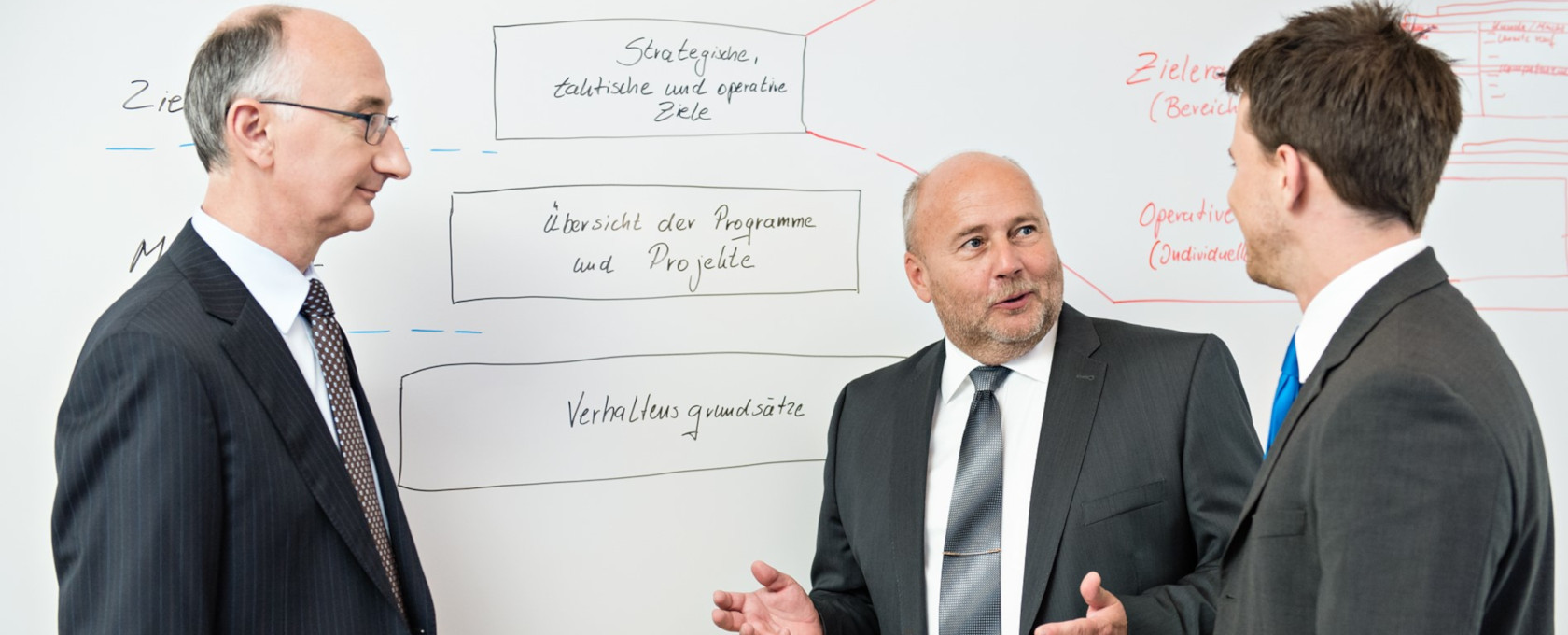The majority of people employed in companies are not only formally, but above all mentally dependent and anchored in traditional systems and behavioural patterns. Changes in companies lead to a comprehensive cultural change, which can be effectively influenced by specific measures according to the situation.
Employees need trustworthy guides who can convince them rationally and emotionally in order to break away from routines and become enthusiastic for the surprises the future has in store. For more than 30 years, the consultants of Radermacher & Partner GmbH have successfully accompanied far-reaching changes in internationally operating companies and groups. Two key factors lie behind the successive growth of our service offering and breadth of experience in change management – the increasing number of mergers of several companies to form one organisational unit and disruptive innovations that radically change product and process structures within companies.
- Post-merger integration: Post-merger integration (PMI) describes the phase in which processes and structures are reorganised when at least two companies become one. We advise and support clients in depth during such integration phases with tailored projects and programmes.
- The first step is to set up the integration project/ programme with a number of key personnel from both organisations to work out the integration plan.
- Functions, competences and areas of responsibility within the management organisation have to be redefined in order to avoid uncertainty and room for interpretation.
- The next step entails selecting and staffing the management levels at least in the first and second subordinate levels. These managers bear the responsibility for the success of the integration process.
- The purpose of change management is to mobilise the employees and thus ensure that the desired effects are lasting. Depending on the extent of the change, this process may take several years.
- The process of dovetailing the operational business of all the companies involved and reorganising the processes for joint lean performance begins with the restaffing in the organisation.
- Digitalisation – Industry 4.0: Our economy is in the process of becoming a digital knowledge-based society. Rapidly advancing change is assuming an unprecedented scale.
- Road and rail vehicles steer their way (semi-)autonomously through the traffic. Capacity utilisation of the infrastructure is rising and the influence of humans as the main risk factor is being reduced.
- Humans and robots are collaborating on flexible assembly islands and can manufacture one-off products according to customer requirements in a short time. Rigid, synchronised production lines are losing their importance; computers are taking over material management independently.
- Three-dimensional workpieces are being printed by additive manufacturing methods. Expensive mould making is disappearing; hardly any material is now lost during manufacture.
Approved mixture: Use of Change Management at Radermacher & Partner
Drawing on the various change models available on the market, over time we at Radermacher & Partner have established our own mix of tools with which to provide excellent support for our clients from the concept to the operational implementation.
- Strategy development/ communication
- Stakeholder management
- Communication
- Support
- Training
- Monitoring
With our interdisciplinary team, which also includes communication scientists and pedagogically and psychologically trained consultants, we can cover the entire range of change management services personally.
